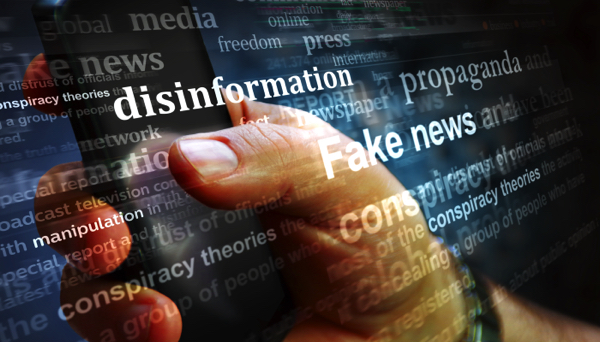 Parler
Parler Gab
Gab
Be careful: It's an ugly, dangerous world out there
Upon discovering the breach, AT&T is said to have taken immediate action. The carrier engaged with cybersecurity experts as well as contacted the FBI, which along with the Department of Justice (DOJ) issued an official statement about the matter. Upon investigation, both the Federal Bureau of Investigation and the DOJ determined that both national security and public safety were put at risk by the breach. "We have taken steps to close off the illegal access points," the two federal agencies announced. "We are working with law enforcement in its efforts to arrest those involved in the incident. We understand that at least one person has been apprehended." AT&T customers are encouraged to take "several proactive steps to protect their personal information and reduce potential risks." Those steps include: 1) Paying close attention to suspicious calls and texts that could be phishing attempts. "Customers should be cautious about unsolicited communications asking for personal information or urging them to click on suspicious links." 2) Using MFA, which while required for administrators remains optional for everyone else. "Avoid using text messages as a form of account verification. This is when a company sends you a code by text message that you have to use to access your account. It's much safer to use a 2-factor authentication app." 3) Stick with app-based calling and texting rather than standard phone calls and SMS text messaging. "Phone carriers, by virtue of their central role in facilitating communications, inherently collect and store vast amounts of metadata related to phone calls and text messages. This metadata, which includes details such as call times, durations, and the numbers involved, can be highly sensitive. Despite its non-content nature, metadata can reveal intricate details about a person's life, habits and social networks." Reclaim the Net recommends using what are known as E2EE (end-to-end encryption) apps that ensure all messages, calls and files are encrypted on the sender's device, and that can only be decrypted on the recipient's device. "This means that no one in between, not even the service providers or potential interceptors, can read or listen to the content," the watchdog says. "This is crucial when the metadata (like call logs and contact numbers) is exposed, as the content of the communications remains secure." By the way, if you are interested in purchasing a smartphone that is "Google-less" and encrypted at the operating system level, check out Above Phone. More related news coverage can be found at CyberWar.news. Sources for this article include: ReclaimTheNet.org NaturalNews.com AbovePhone.comCROWDSTRIKE DESTROYED the INTERNET temporarily, so what’s next, and are YOU ready?
By S.D. Wells // Share
Over 300 suspected heat-related deaths under investigation in Maricopa County
By Ava Grace // Share
Tesla plans to launch humanoid robots next year, says Elon Musk
By Kevin Hughes // Share
The CrowdStrike global outage shows the serious dangers of a centralized, digitized world
By News Editors // Share
Governments continue to obscure COVID-19 vaccine data amid rising concerns over excess deaths
By patricklewis // Share
Tech giant Microsoft backs EXTINCTION with its support of carbon capture programs
By ramontomeydw // Share
Germany to resume arms exports to Israel despite repeated ceasefire violations
By isabelle // Share










